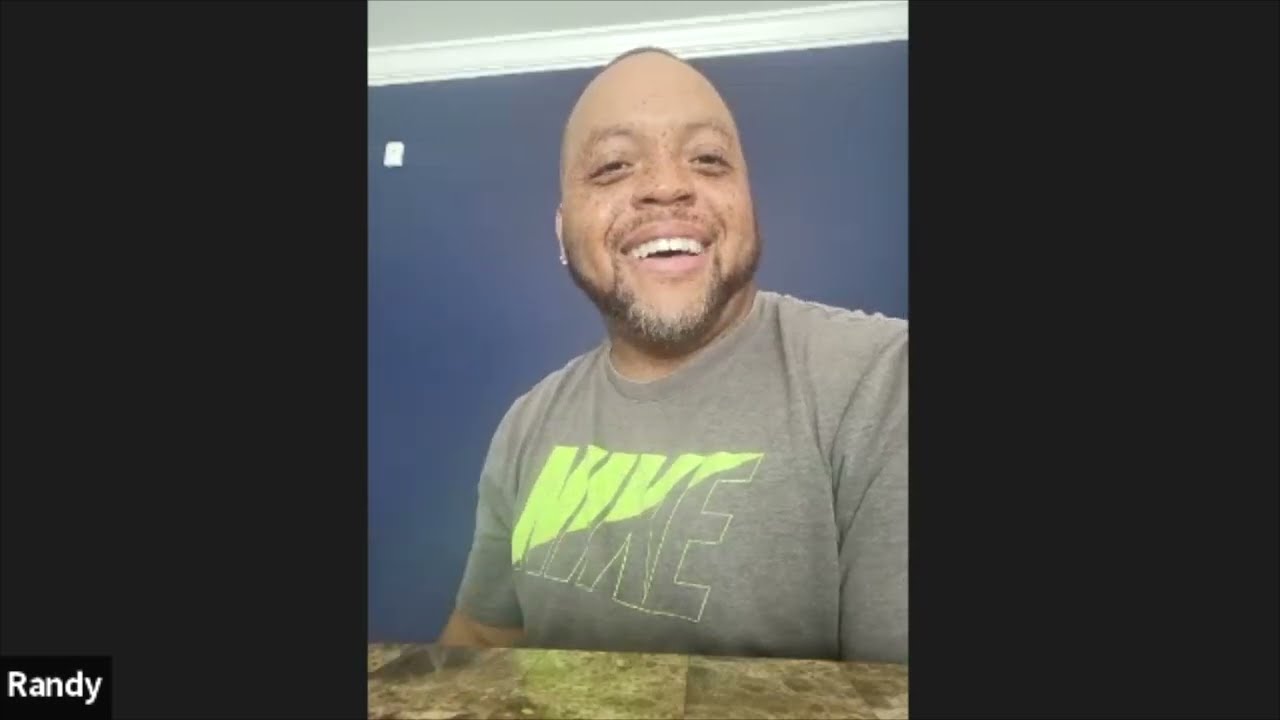The moment Randy Terrell found himself sitting alone in a dimly lit prison cell was a stark contrast to the dreams he once had of playing in the NFL. Just a few years prior, he was a star running back at Monmouth College, filled with hope and ambition, the cheers of fans echoing in his ears. But as he sat there, the weight of his decisions pressed down on him, and he realized how far he had strayed from the dreams that once fueled his life. Randy grew up in Hazelwood, Missouri, as one of six children, with roots tracing back to Arkansas and Mississippi.
His upbringing was filled with love and support, and he was encouraged to pursue his interests in sports. As a child, he thrived in the competitive environment of high school athletics, excelling not just in football but also in basketball. His family believed in him, and he carried that belief into his college career. But when the NFL didn’t come calling, Randy faced a harsh reality that many athletes encounter what happens when the game ends? But it was during this time of uncertainty that Randy began to spiral.
The pressure to succeed weighed heavily on him, and the expectations from his family only added to his distress. Feeling lost and without a plan, he made choices that would lead him down a dark path. He became involved in a car theft scheme, acting as a middleman in a world he never thought he would enter. The thrill of quick money overshadowed the consequences, and soon, the law caught up with him.
His time in prison forced Randy to confront the choices he had made. It was a sobering experience that brought clarity. He reflected on the pressures he felt and the embarrassment of not achieving his dreams. He recognized that many athletes face a similar struggle when their sports careers end.
The transition can be jarring, leaving them vulnerable to depression and poor decision making. Randy learned firsthand that the end of a sports career doesn’t just signal a new chapter; it can feel like the end of an identity. As he served his time, Randy began to understand the importance of support systems for athletes. He realized that many young men and women, like him, need guidance and mental health resources as they navigate life after sports.
His experiences motivated him to seek redemption, not just for himself but for others who find themselves in similar circumstances. Now, out of prison and working to rebuild his life, Randy has taken on the role of an advocate. He emphasizes the necessity of addressing mental health issues within the athletic community, particularly for those transitioning out of sports. He speaks openly about his past, sharing his story not for sympathy but to enlighten others about the potential pitfalls that lie ahead.
His mission is clear: to help athletes recognize their worth beyond the field and to encourage them to seek help when needed. In our conversation, Randy shared how vital it is for athletes to have a plan B, a support network that can help them re establish their identity outside of sports. “It’s not just about the game,” he said, reflecting on his journey. “It’s about knowing who you are when the game is over.” This insight resonates deeply, highlighting the need for a cultural shift in how we view athletes and their mental health. Randy’s story is a powerful reminder of the fragility of dreams and the importance of community. It shows that while the pursuit of excellence in sports is commendable, the aftermath can be just as crucial.
By sharing his experiences, Randy not only finds healing for himself but also offers hope and guidance for others who may be struggling in silence. As he continues to rebuild his life, Randy Terrell stands as a voice for those who have fallen but are determined to rise again. His journey is a call to action for all of us to support one another, especially those who have dedicated their lives to sports. In recognizing the importance of mental health and community, we can foster a culture that uplifts everyone, ensuring that no athlete has to navigate their challenges alone.

